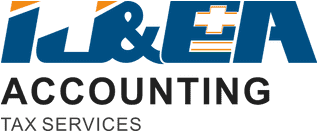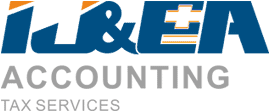Managing accounting for NDIS (National Disability Insurance Scheme) providers can be time-consuming due to various factors, no matter what sort of business structure. In this article, we will explore the key reasons behind the time-intensive nature of NDIS accounting and discuss potential solutions to streamline the process.
One of the primary reasons for the considerable amount of time required to manage NDIS accounting is the inherent complexity of the NDIS system. NDIS providers must meticulously track and report on the services they provide, the funding they receive, and the expenses they incur. Accuracy, up-to-dateness, and compliance with regulations and guidelines required by the National Disability Insurance Agency (NDIA) are paramount in this process.
To effectively handle their accounting responsibilities, NDIS providers with NDIS registration must keep track of multiple revenue sources, such as NDIS funding, insurance reimbursements, and private payments. Additionally, they need to manage various expenses associated with staffing, equipment, rent, and other operational costs. Ensuring precise financial records is vital for compliance and maintaining the organisation’s financial health.
Another factor contributing to the time-intensive nature of NDIS accounting is the need to maintain detailed records of client interactions and services provided. NDIS providers are required to keep track of client goals, progress reports, care plans, and other documentation mandated by the NDIA. This comprehensive documentation ensures that the services provided align with the client’s needs and goals while also supporting accurate reporting.
Furthermore, the paperwork and administrative tasks involved in managing NDIS accounting can be overwhelming. For example, providers are often required to submit regular reports to the NDIA, maintain accurate financial records, process invoices, and manage payroll and taxation requirements. These administrative duties can consume significant amounts of time and effort, diverting providers’ attention from their primary focus of delivering quality services to NDIS participants.
To address these challenges and streamline the accounting process, NDIS providers can consider implementing various potential solutions. Firstly, utilising specialised accounting software designed specifically for NDIS providers can significantly facilitate compliance with reporting and financial management requirements. In addition, these software solutions often automate compliance-related tasks such as record-keeping and reporting, resulting in time savings and improved accuracy.
Additionally, investing in cloud-based accounting software that offers automated data entry and real-time visibility into financial transactions can greatly expedite the process, including accounting and bookkeeping. By reducing the time and effort for manual data entry and reconciliation, these software solutions enhance data management efficiency and accuracy.
Moreover, implementing accounting software with robust invoicing and cash flow management features enables NDIS providers to maintain a healthy cash flow. Streamlining the invoicing process, tracking payment due dates, and generating accurate cash flow forecasts becomes more seamless, allowing providers to manage their finances and save valuable time proactively.
For NDIS providers with limited resources and expertise in accounting, outsourcing certain accounting services functions can prove advantageous. By delegating tasks to outside accounting teams, such as bookkeeping or tax preparation, to qualified professionals or virtual assistants, providers can free up their time focusing on delivering quality services to NDIS participants.
Staying updated with Australian tax and reporting requirements is crucial for NDIS providers. Given the frequent changes in taxation laws and reporting obligations, it is essential to remain informed. Providers can seek updates from industry associations, attend professional development events, or obtain tax advice by consulting with specialised tax accountants or registered tax agents to stay ahead of regulatory changes. This proactive approach enables providers to navigate tax requirements, tax planning, potential income tax deductions and tax return reporting obligations efficiently, mitigating the risk of penalties and unnecessary stress.
In conclusion, efficient accounting processes play a pivotal role in the success of NDIS businesses. By leveraging specialised accounting software, streamlining data entry and reconciliation, mastering cash flow management, outsourcing when necessary, and staying updated with taxation and reporting obligations, having a specialised accountant to lodge your tax return, providers can overcome time constraints and focus on delivering a quality support to NDIS participants. These potential solutions not only save time but also devote to the growth and success of businesses in the NDIS sector. By embracing efficient accounting practices, NDIS providers can position themselves for thriving businesses.












